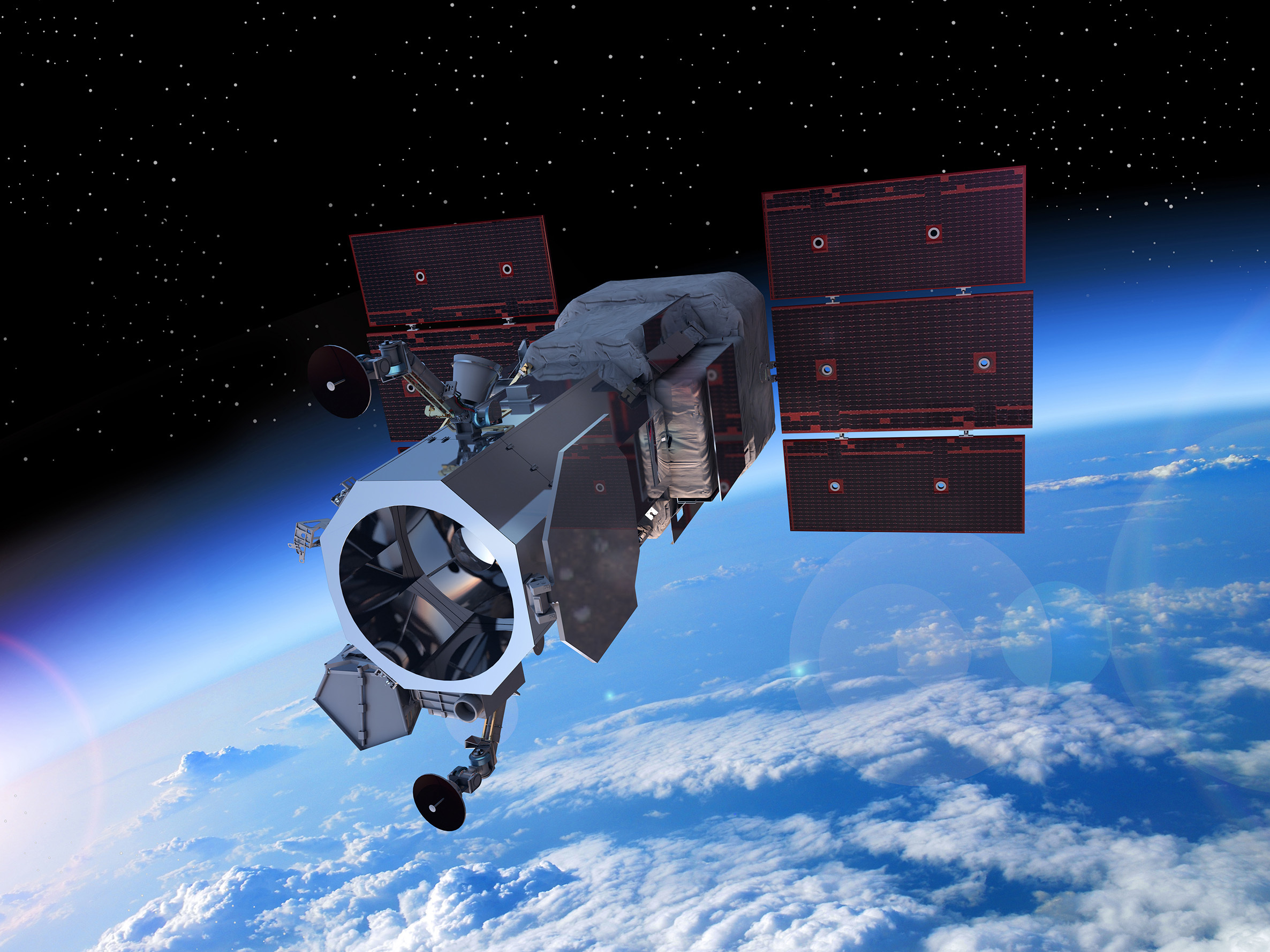
Maxar’s WorldView-2 satellite was hit by a piece of space debris in 2016; fortunately its operations were not impacted.
Space is a harsh operating environment, and the spacecraft Maxar builds for itself and its customers must be incredibly resilient. To make it to space safely, a satellite must endure launch aboard a rocket that produces more than a million pounds of thrust and accelerates past 22,000 miles per hour. Once in space, solar radiation heats the sunny side of low Earth orbit (LEO) to around 250° F, while the side of that orbit shaded by Earth could be 500 degrees colder. Satellites in LEO go through this rapid heating and cooling cycle every 94 minutes, 15 times a day, for lifecycles that can exceed a decade. Then there is electromagnetic radiation in space, which is at higher levels and in different types than we see on Earth and can disrupt or damage sensitive spacecraft electronics.
With all of these challenges, we don’t need to make space operations any more difficult by cluttering Earth orbit with more junk that poses a risk to active spacecraft. This is why Maxar has long been a proponent of acting responsibly in space, and one of the key objectives of responsible operations is limiting space debris. Maxar relies on both government and commercial data sources to monitor potentially hazardous objects in space with the greatest possible fidelity, and we share our orbit data and planned orbital maneuvers. We use active spacecraft propulsion systems to maneuver to avoid potential collisions. We encrypt command links to ensure no other party can control our spacecraft. And we follow the industry best practice of deorbiting our spacecraft within five years of their end of mission.
But preserving the space environment is a lofty goal that will take sustained, coordinated efforts. That is why Maxar last month joined a group of global commercial space companies in signing on to World Economic Forum’s Space Industry Debris Statement. We encourage all space-faring organizations to consider the unique and valuable space environment that humanity shares and to follow the principles outlined in this statement:
The rapidly growing space economy is expected to reach $1 trillion USD by the 2030s. However, this growth is threatened by the increase of human-made space debris, which is approaching a critical level. Close to 1 million objects larger than 1 cm travel at 27,000 km per hour in Earth orbit. Any one of these objects poses a risk to satellites or spacecraft, including those with humans on board. Satellites power our modern economy as they provide navigation signals for billions of devices around the globe. They monitor our environment in ways that can only be done from space, conduct other cutting-edge science missions and provide connectivity to remote areas, including ships and planes. Debris endangers these services and benefits, along with human space flight and missions to and beyond Earth’s orbits.
As a space community, we must start doing a better job at safeguarding the Earth orbits and ensure we use them in a sustainable and safe manner now and for future generations. This is why we believe in minimizing and preventing, where possible, any new debris created as a result of our missions. Critically, no actions should be taken that purposefully create debris. We therefore commit to working with governments, civil society, commercial partners and competitors to substantially reduce any new debris creation. We also call for new collaborations in transparency between operators. Finally, we must continue to work together to speed up development of technologies and practices for the disposal of spacecraft at end-of-life, and for removing existing debris already in orbit. These are necessary steps in ensuring more responsible operations in space, which we all share. We encourage companies throughout the space sector to join us on this mission and to work together to inform and help governments create a practical set of regulations for the sustainable use of space.